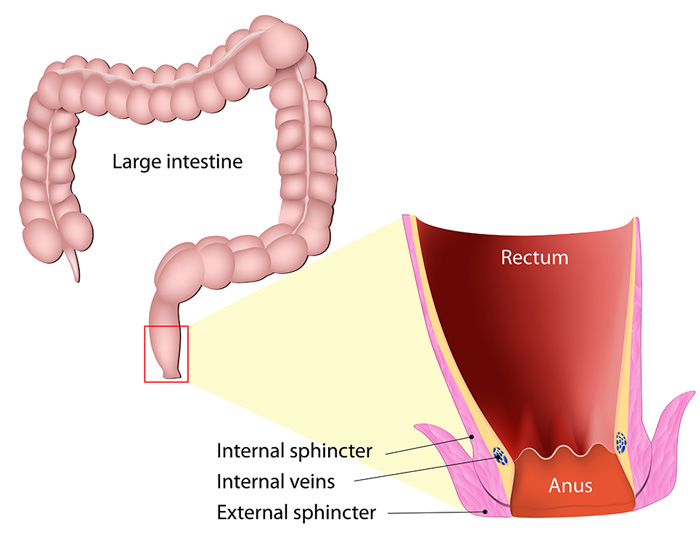
Faecal incontinence refers to the inability to properly control one’s bowel movements, resulting in stool leaking unexpectedly from the rectum when you don’t want it to. It can occur at all ages but tends to occur at in older age groups and in ladies.
Faecal incontinence can be observed in some of these situations:
- Stool leak out involuntarily when passing gas
- The urge to pass motion comes and you are not able to make it to the bathroom in time and soil yourself
- Stained underwear after a normal bowel movement
- Stools leak out during physical activity or daily life exertions
WHY DOES FAECAL INCONTINENCE OCCUR?
- When the muscles in the rectum and anus are not functioning normally. A possible cause is frequent diarrhoea or constipation, which cause these muscles to weaken.
- When the rectum is unable to stretch properly due to not being as elastic as they should be, the rectum fills up with stool quickly and excess stool can leak out.
- When the anal sphincter muscles are not able to squeeze the anus shut and hold stool in. This could occur with old age (as the muscles weaken), past perianal procedures, difficult childbirth or previous trauma to the pelvis or anus region.
- When one’s "rectal sensation" is not present, one will not know that they need to go to the toilet. This is caused by nerve damage from cancers, previous surgeries, or neurological issues like a stroke or spinal tumour.
HOW IS FAECAL INCONTINENCE TREATED?
LIFESTYLE CHANGES
Simply wearing absorbent pads or adult diapers can help keep your underwear clean and make cleaning up after a bowel movement much easier.
DIETARY CHANGES
The goals are to avoid foods that cause loose stool (e.g. caffeine, greasy or spicy foods), and to eat more foods that prevent constipation (e.g. bananas, staying hydrated).
BOWEL TRAINING
Developing a regular bowel movement pattern can improve faecal incontinence. The idea is to have bowel movements at specific times of the day until the body eventually gets used to the pattern, reducing instances of constipation and its associated faecal incontinence.
PELVIC FLOOR EXERCISE
Strengthening the pelvic floor muscles can help improve bowel control. These exercises involve squeezing and relaxing the pelvic floor muscles repeatedly; and your doctor will best advise you on the frequency needed.
BIOFEEDBACK
Biofeedback therapy helps improves a person’s awareness of sensations in the rectum. This helps patients improve the coordination of squeezing the sphincter muscle with the sensation of rectal filling.
MEDICATIONS
Depending on the cause of faecal incontinence, you may be prescribed medications to control diarrhoea, bulk the stool, or any other disease contributing to the problem (e.g. inflammatory bowel disease).
SURGERY
Surgery may be an option when other conservative treatments do not suffice. It is estimated that around 40% of patients with faecal incontinence will require surgical treatments in order to effectively regain bowel control.
Methods include:
- Sphincteroplasty: The most common procedure for faecal incontinence, this method involves reconnecting the separated ends of an anal sphincter muscle that was previously torn (e.g. as a result of childbirth or injury).
- Rectal Prolapse Surgery: In patients whose faecal incontinence is as a result of pelvic floor weakness that caused the rectum to "fall out" (prolapse), this procedure can lift the rectum and surgically secure it into its rightful place.





